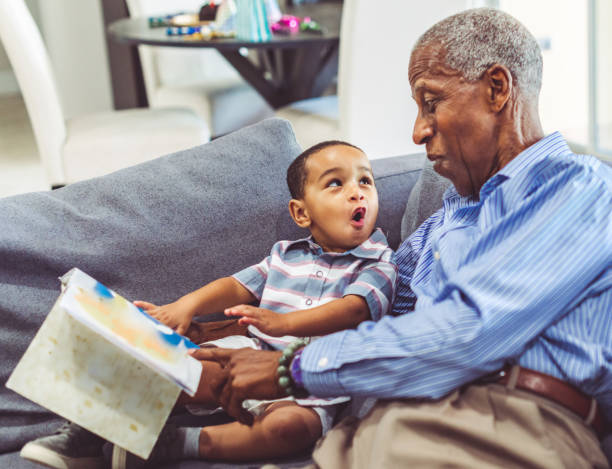It’s fascinating how children dive headfirst into new adventures. I’m almost jealous of their awe and wonder at the simplest of things, their curiosity and eagerness to learn how things work.
At a young age, children are lucky enough to lack an Ego. That voice inside our head that stops us adults from admitting we don’t understand something. Or warns us not to ask for help, for fear of revealing vulnerability. Pretty quickly though, even kids develop an ego and as we grow older, we may get boxed into a belief that admitting our ignorance is shameful, acknowledging our lack of skill or knowledge is weakness.
Is this why we become less joyful as we age?
The Safety of What we Know
Something very strange happens to our priorities as we grow older. The emotion known as “Joy” becomes less familiar, perhaps branded as somewhat childish. Safety and security climb up the priority ladder. Life’s hardships teach us to seek comfort in the familiar and abandon the thrill of discovering the unknown.
For many of us, that means venturing less into uncharted waters. Sticking to what we know, who we know and how we know things are done. Granted, this can make us feel safe. It can also give us a sense of power and control. Knowing what to do and what to expect is a sign of expertise, isn’t it? And in the grown-up world, expertise comes with social status.
But with this sense of knowing comes a dreary life of predictability.
What if we could push past the ego’s warnings and step into the unknown every once in a while? What if we could recapture that childlike sense of wonder? Could we rekindle that spark of curiosity? Could we embrace the new and unfamiliar – be they skills, hobbies, people or perspectives, to bring back the joy of discovery into our lives?
The Journey of Learning: Rediscovering Our Childlike Wonder
Let’s be honest, learning something new is tough. There’s usually lots of fumbling and stumbling and the uncomfortable feeling that we probably, look foolish.
There’s the voice inside our heads screaming “You’ll never get the hang of this. Stop, you’re embarrassing yourself, you shouldn’t even try!“
That’s the ego, desperately trying to pull us back to safety.
This is the learning curve – and it’s a bumpy ride. It can be especially challenging in a world where most tools, from digital apps to home appliances, are designed to be “intuitive” and “fool-proof”. In other words, no learning necessary. When was the last time you read a manual to operate a fridge? Or consulted Instagram’s help page to post a photo?
Yet, there’s a certain satisfaction that comes with attempting something difficult and eventually becoming good at it. Children experience that almost daily since everything feels new and a little difficult to them.
We adults mostly avoid this like the plague. We construct fortresses of familiarity and walls of experience to protect us from the uncertainty of not knowing. Some of us though, the more adventurous, are aware of this fulfillment and maybe even can’t imagine life without it. The mountain climbers, the explorers, the artists and … the learners.
There’s a little magic in those moments we allow ourselves to be beginners again.
The Joy of Learning
Once you push past that initial fear of the unfamiliar, you realize that what happens next is less predictable. The possibilities are undefined, the outcomes unknown – and things get exciting. Yes, a little scary, but still exciting. 🙂
Daddy Look What I Can Do
I remember the summer I taught my daughter how to ride a bicycle. The stumbling, the falls, the scratched knees and the tears. I also remember the courage she displayed, getting back on that bicycle every time she crashed into a tree or fell into a bush.
Of course, I was there to provide support and guidance, but it was her eagerness to learn and her lack of self-judgment that eventually let her get the hang of it and take off on two wheels. Most of all, I remember her wide grin, with her curly hair flying behind her as she raced to catch up with her brother. Utter joy.
If you’re familiar with me and this blog, you probably know, I love to teach. Seriously, I will teach anyone, anything I know, at the drop of a dime. I admit, there’s a selfish reason for that. I just love seeing that grin on someone’s face when they’ve just learned something new.
I’m not talking about that tight, polite adult smile. I’m referring to that broad as daylight, ear to ear, watery-eyed grin people get when you teach them to play their first chord on a guitar. Or when they catch their first fish. Or when they learn how to say “good morning” in Arabic. For a moment, you can glimpse their inner child.
Maybe that happiness springs from the realization that, “hey I could get the hang of this”. Maybe it comes from peeking at the future and seeing a less familiar, but more interesting path.
Whatever the reason, I’ve seen that grin on enough people’s faces after they’ve learned something new to attest to the joy of learning first hand.
Why Learning Brings Us Joy
As we make progress in learning something new, it gives us a thrilling sense of hope. The possibility that we can actually get good at this becomes real. Renowned psychologist Carol Dweck’s research reveals that a willingness to learn and grow is fundamentally linked to how we see and value ourselves. She describes this as having a Growth Mindset, which has been shown to lead to greater achievement and personal satisfaction.
As we persist in our learning journey, the initial stumbles give way to smoother steps. The foreign becomes familiar, and before we know it, we’re doing things we once thought impossible.
There’s a whole new kind of fulfillment associated with this phase. It’s not a fleeting moment of joy, more like a swagger of confidence, or a subtle self-assurance. A grounded feeling of self-worth.
Finally, as we become more confident and self-assured, another source of satisfaction forms. The joy of mastering something and being able to teach it to others. Extending out a helping hand to those just starting and witnessing their joy is a reward in and of itself.
The Multifaceted Benefits of Life-long Learning
Embracing new learning experiences doesn’t just expand our skill set – it rejuvenates our entire being. Our minds stay sharp, constantly forging new neural pathways. Our spirits are lifted by the satisfaction of overcoming challenges and our self-esteem is elevated as we master new things.
Each learning experience brings a series of “aha” moments, and suddenly, you’re not just watching life happen—you’re making it happen. The joy of telling yourself, “I didn’t know that, and now I do,” is unmatched.
Learning is exercise for the brain. Engaging in new activities stimulates the mind and can improve cognitive functions, keeping the brain in shape as we age. Studies have shown that lifelong learning can delay cognitive decline and foster mental health. Research on neuroplasticity suggests that our brains continue to form new connections throughout our lives, especially when we engage in novel and challenging activities.
Moreover, learning can be incredibly fulfilling, boosting our mood and overall happiness. It gives us a sense of accomplishment and can significantly boost our self-esteem and resilience. Studies have found a positive correlation between learning new skills and increased life satisfaction.
Don’t Forget the Social Aspect
Especially for adults, learning often connects us with like-minded individuals.
Whether it’s a cooking class, a tech workshop, or an online course, each setting provides a community of learners that enriches our social lives. These interactions can lead to friendships that offer support and deepen our sense of community.
As a result, lifelong learners are not just stuck with friends from work or school, they surround themselves with communities of like-minded individuals with shared interests.
The Joyful Life of a Life-long Learner
In every stage of learning—from the initial discomfort to the final mastery—the journey is revitalizing. It keeps us mentally sharp, emotionally satisfied, and socially connected.
In the end, learning something new is about more than acquiring a skill. It’s about reclaiming that childlike ability to find joy in discovery, to approach the world with curiosity rather than assumption.
So, what’s something new you’ve been wanting to learn but haven’t started yet? A language, a skill, or maybe a sport? Why not take that first step today? Let me know in the comments – you might inspire someone else to start their own journey of learning!








I always wanted to learn French. It sounds so beautiful and sophisticated 🙂 Just never found the time or the will.
And I’ve started learning Spanish 🙂